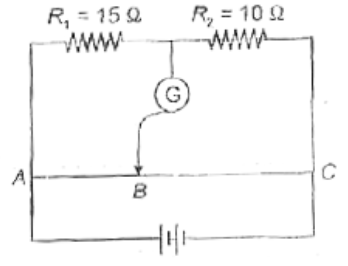In the shown arrangement of the experiment of the meter bridge if AC corroesponding to null deflection of galvanometer is x, what would be its value if the radius of the wire AB is doubled?
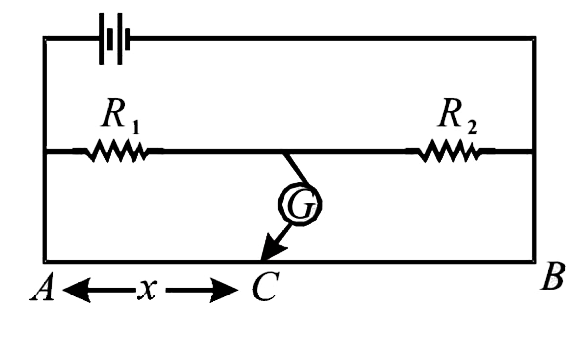 .
.
x
x/4
4x
2x
The correct Answer is:A
a. At null point R1/R2=R3/R4=x/(100−x). If radius of the
wire is doubled, then the resistance of CB will change. But since R1/R2 does
not change, so R3/R4 should also not
change at null point. Therefore, the
point C does not change.
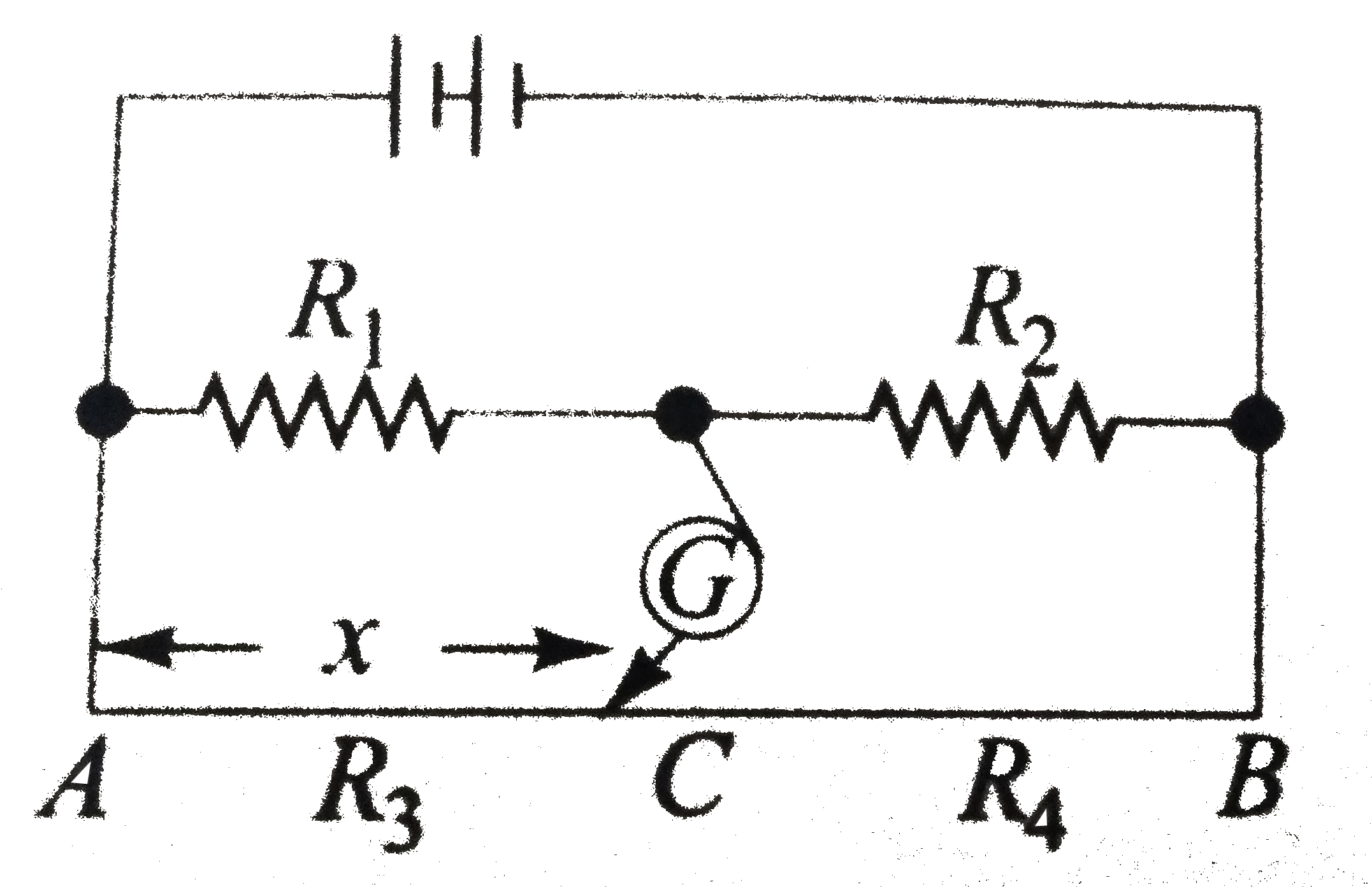
R∝1A,R3R4=A4A3=1.
Ratio does not change.
Similar Questions
Knowledge Check
In the shown arrangement of the experiment of the meter bridge if AC corroesponding to null deflection of galvanometer is x, what would be its value if the radius of the wire AB is doubled?
 .AxBx4C4xD2x
.AxBx4C4xD2xIn the shows arrangement of a meter bridge, if AC corresponding to null deflection of galvanometer is x, what would be its value if the radius of the wire AB is doubled?
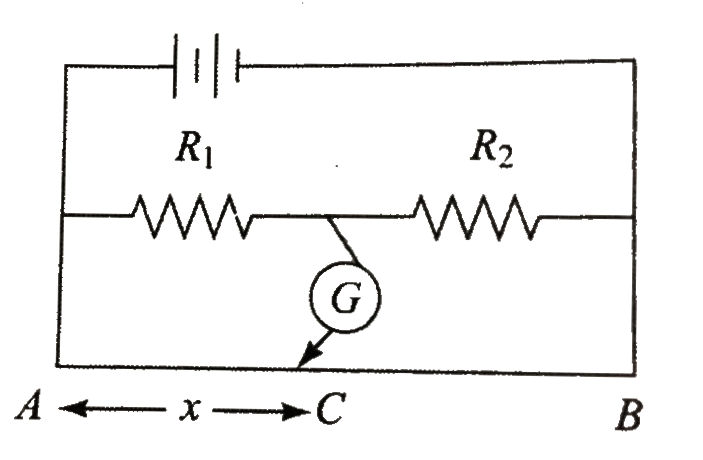 AxBx/4C4xD2x
AxBx/4C4xD2xStatement I: In the meter bridge experiment shown in figure, the balance length AC corresponding to null deflection of the galvanometer is x. If the radius of the wire AB is doubled, the balanced length becomes 4x.
Statement II: The resistance of a wire is inversely proportional to the square of its radius.
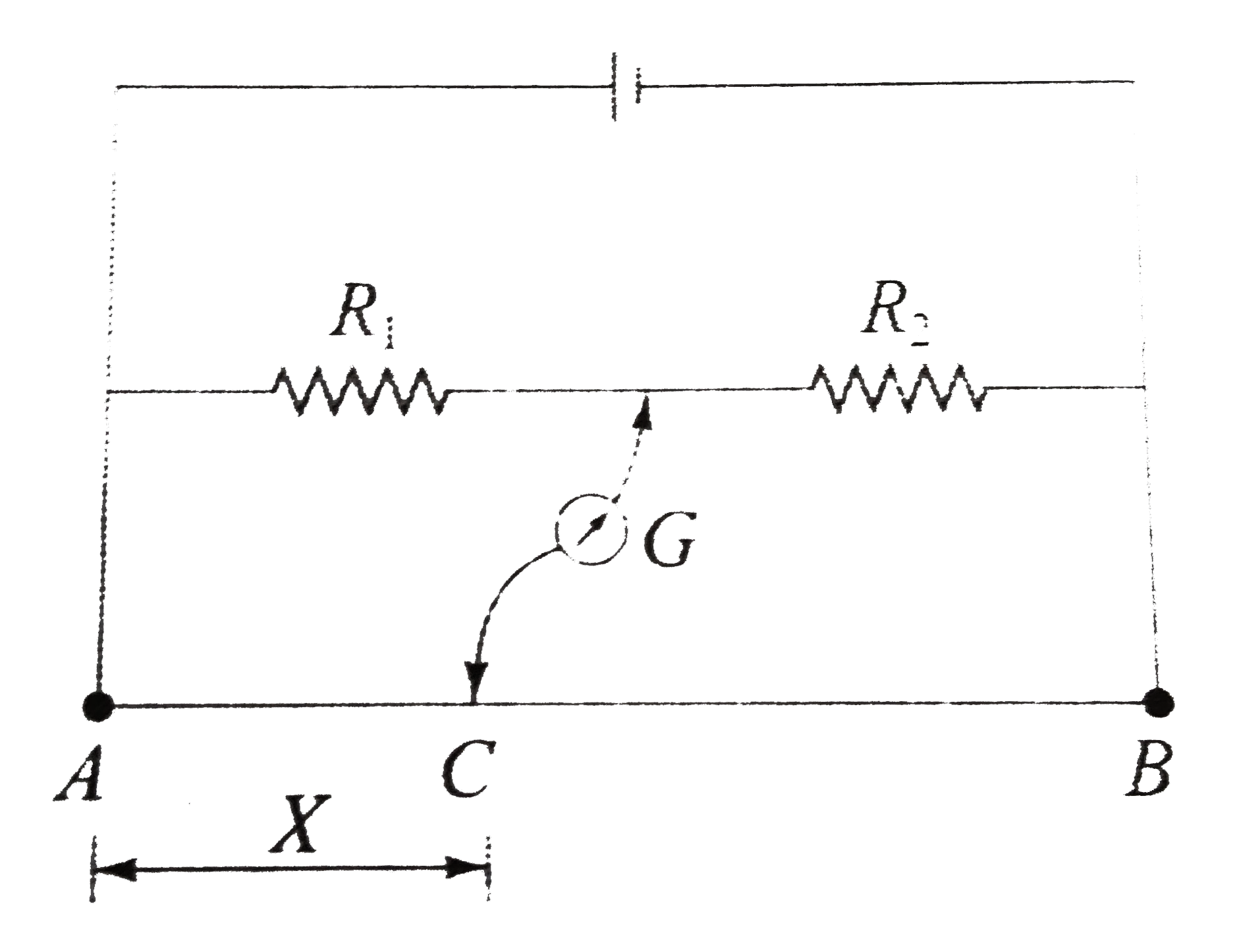 AStatement I is true, Statement II is True, Statement II is a correct explanation for Statement I.BStatement I is True, Statement II is True, Statement II is not a correct explanation for Statement I.CStatement I is True, Statement II is False.DStatement I is False, Statement II is True.
AStatement I is true, Statement II is True, Statement II is a correct explanation for Statement I.BStatement I is True, Statement II is True, Statement II is not a correct explanation for Statement I.CStatement I is True, Statement II is False.DStatement I is False, Statement II is True.
In the meter bridge circuit shown in figure-3.281 find the length AC at null deflection in galvanometer.
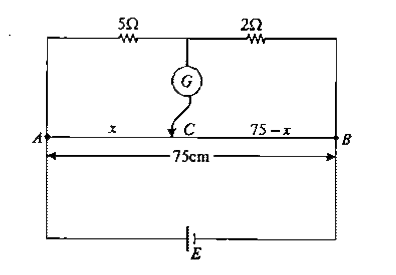
View SolutionIn given setup if there is no deflection in galvanometer then find value of x. Total length of wire AB is 78cm
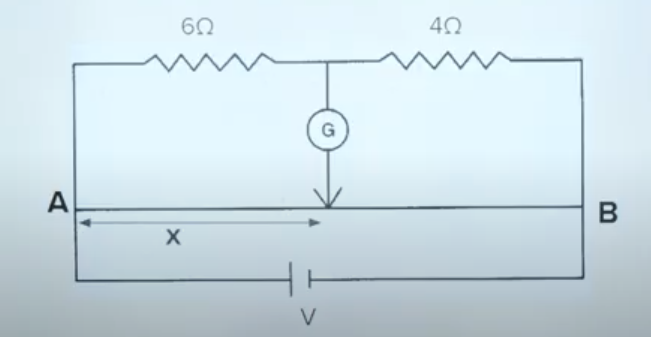
View SolutionIn the circuit of meter bridge shown in the figure.If null deflection is obtained at 40cm length of the wire as shown,the value of unknown resistance is
View SolutionShown in the figure below is a meter- bridge set up will null deflection in the galvanometer.
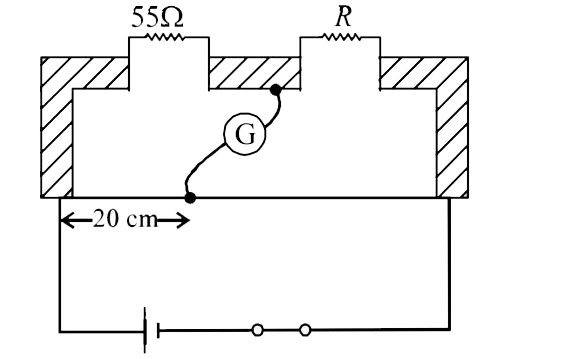
The value of the unknown resistor R is
View SolutionA nichrome wire AB, 100 cm long and of uniform cross section cross section is mounted on a meter scale the points A and B coinciding with 0 cm and 100 cm marks respectively. The wire has a resistance S = 50 ohm, Ay point C along this wire, between A and B is called a variable point to which on end of and electrical element is commeted. In the following questions this arrangement will be referred to as 'wire AB'.
In the circuit adjacent arrangement it is found that deflection in the galvanometer is 10 divisions. Also the voltage across the 'wire AB' is equal to the across the galvanometer. the current sensitivity of the galvanometer is about.
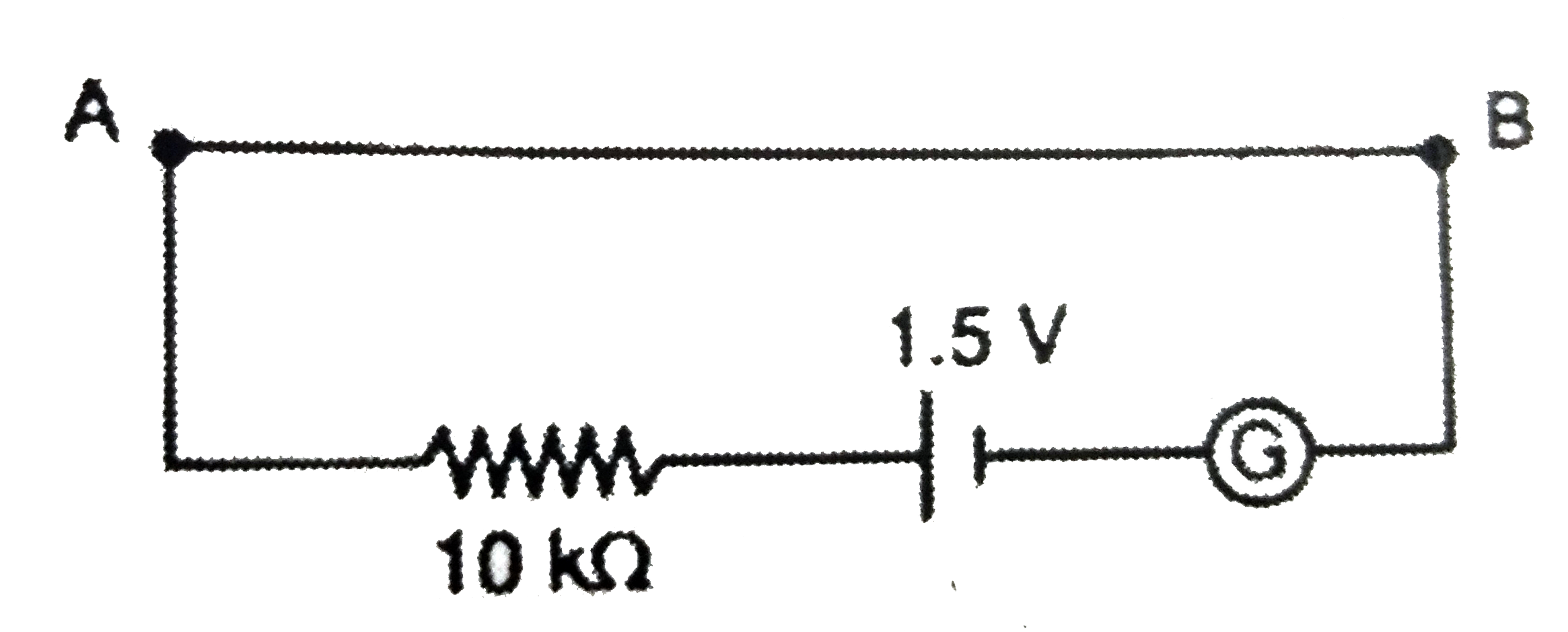
View Solution

